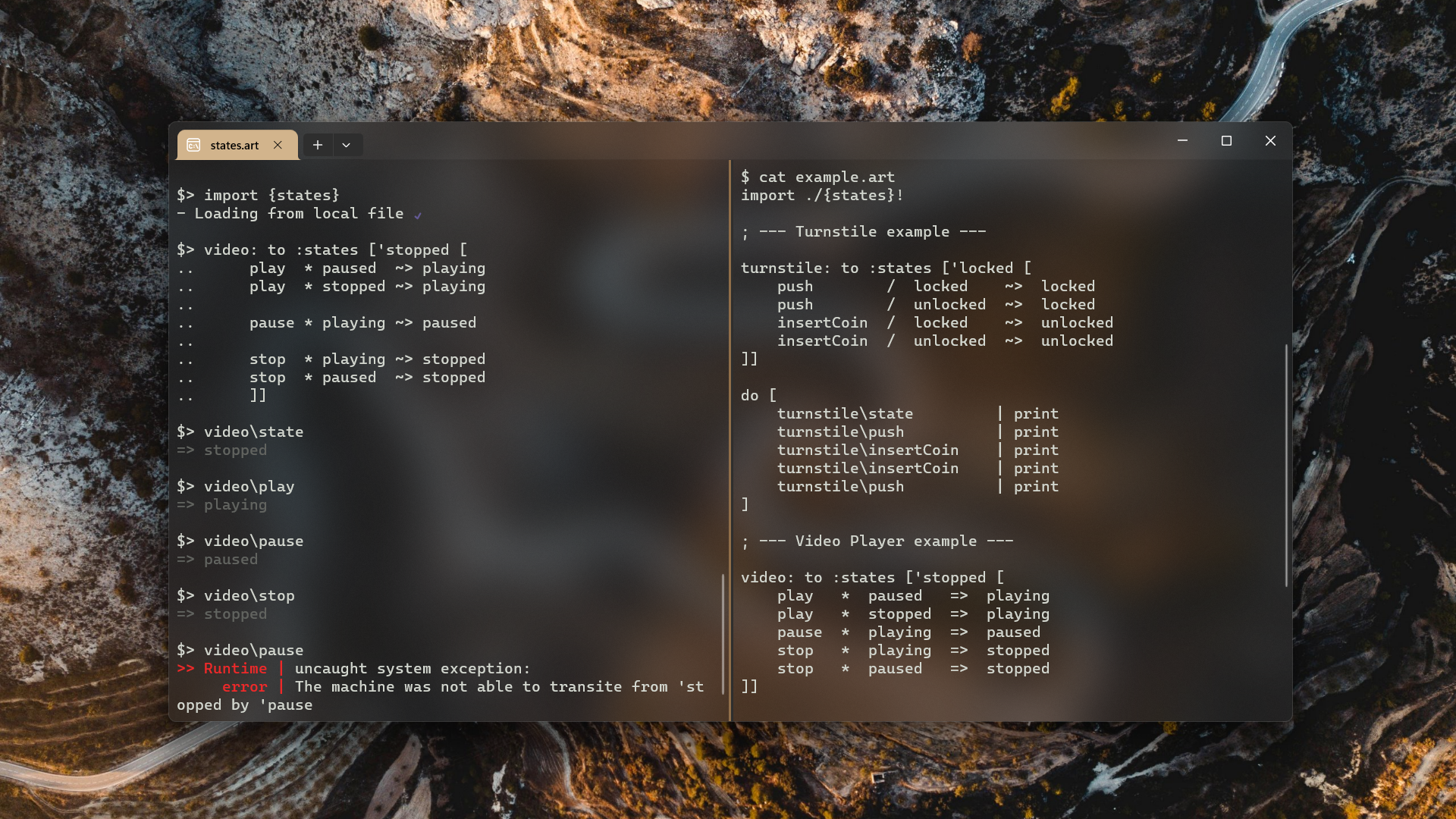:states
:states is a basic Finite State Machine (FSM) package for the Arturo Programming language![]()
At a Glance

Inspiration
This package was highly inspired by Harrington Joseph's 1 talk "When Booleans Are Not Enough... State Machines?" 2.
By consequence, this is inspired by the pytransitions package.
Tip
If you want to know why you need a FSM, I recommend you to watch his talk first.
Trying :states
Defining a finite state-machine is simple like that:
import {states}!
turnstile: to :states ['locked [
push / locked ~> locked
push / unlocked ~> locked
insertCoin / locked ~> unlocked
insertCoin / unlocked ~> unlocked
]]
Explanation
- The first parameter is the initial state,
- The second parameter is the definition os the transitions,
this must follow the following order: event, source, fate, being or not separated by symbols. - You can choose what symbol to use to separate them, or even choose by don't use them, making this a trilema.
Getting the current state
To get the current state, you must call the state method:
turnstile\state
; => locked
Transitioning between states
There are two equivalent ways of transitioning between states, you can use <fsm>/<event> or <fsm>\changeFrom '<event>:
turnstile\state
; => locked
turnstile\push
; => locked
turnstile\insertCoin
; => unlocked
turnstile\insertCoin
; => unlocked
turnstile\changeFrom 'push
; => locked
turnstile\changeFrom 'insertCoin
; => unlocked
Background photo on "At a Glance"
by Jack Anstey on Unsplash
"When Booleans Are Not Enough... State Machines?" by Harrington Joseph can be found in two places, on the Channel Next Day Video Presented on PyTexas 2019 and on the Channel SF Python presented on SF Python Meetup Feb 2019. ↩
| 0.1.0 | 11 February 2024 | 3199822 / 6 files |
No dependencies.